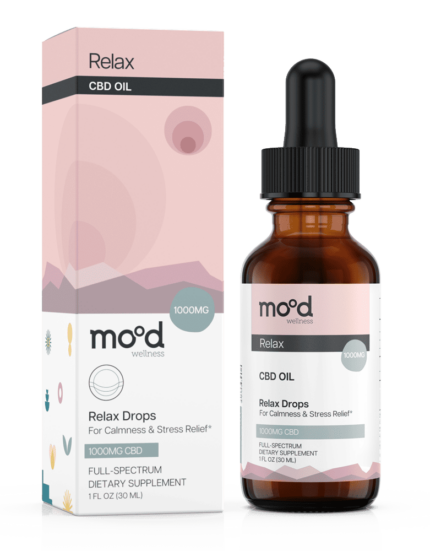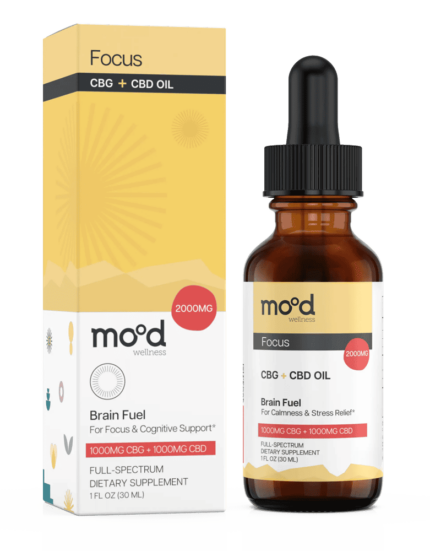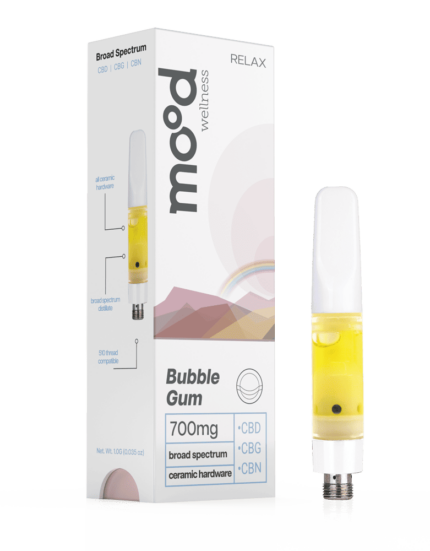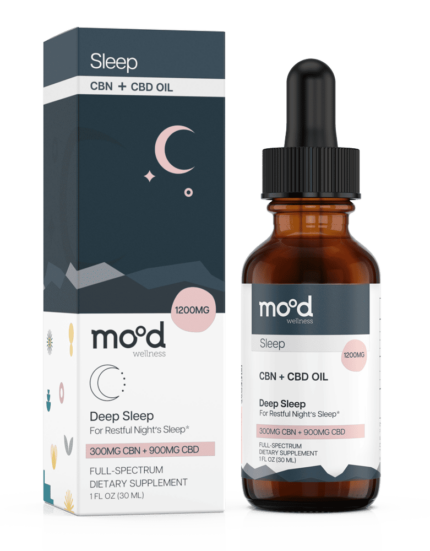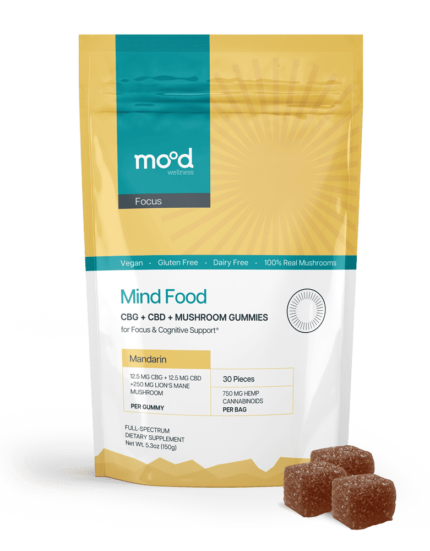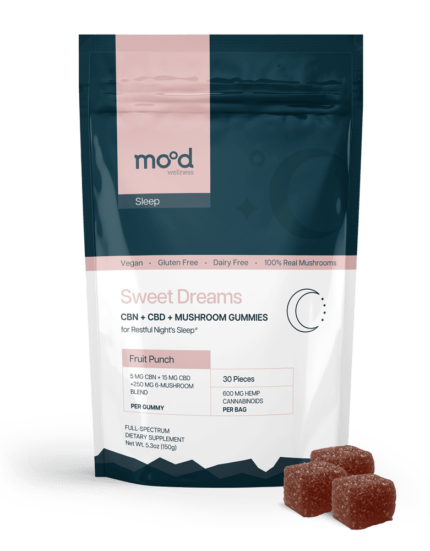Cannabidiol (CBD) is one of the most popular natural supplements on the market today. It’s used by people of all ages for a variety of reasons, but how exactly does CBD work?
In this blog post, we’ll discuss the science behind CBD and how it interacts with your body to create its beneficial effects.
We’ll explore what CBD is, how it works in your body, and why it may be helpful.
Through a better understanding of CBD and its effects on the body,
you may be able to make more informed decisions about whether or not it could be a good supplement for your needs.
How Does CBD Interact With The Human Body?
CBD interacts with the human body through the endocannabinoid system (ECS), a complex network of receptors and chemicals found throughout the body.
The ECS is involved in regulating many physiological processes, including pain, mood, appetite, and immune function.
When CBD is introduced into the body, it interacts with the ECS indirectly by modulating the release of neurotransmitters and other signaling molecules.
This interaction helps to regulate the ECS and maintain a balance in the body, leading to potential health benefits such as reduced pain and anxiety, improved sleep, and enhanced immune function.
Even though CBD does not bind directly to CB1 or CB2 (the main cannabinoid receptors),it does have the ability to influence them.
Research has shown that CBD can indirectly activate the receptors, causing them to either produce more of their own endocannabinoids
or to reduce the breakdown of existing ones. By doing this, CBD can help to maintain a state of balance in the body and support various health issues.
It’s important to note that while CBD has shown promise, more research is needed to fully understand its mechanisms of action and potential side effects.
The Activation Mechanisms Of CBD
Inhibition of FAAH Enzyme
One of the ways in which CBD may influence the endocannabinoid system
is by inhibiting the breakdown of endocannabinoids.
The body produces endocannabinoids, which are similar to cannabinoids found in the cannabis plant.
These endocannabinoids bind to receptors in the body and help to maintain balance.
However, over time, the body breaks down these endocannabinoids.
CBD can help to prevent this breakdown by inhibiting the activity of an enzyme called FAAH.
This enzyme is responsible for breaking down anandamide, an endocannabinoid that plays a role in pain regulation, appetite, and mood.
By inhibiting the activity of this enzyme, CBD may help increase levels of anandamide in the body, which may improve various health conditions that are related to pain and inflammation.
Antioxidant Activity
In addition to interacting with the endocannabinoid system,
CBD also contains antioxidant properties that aid in protecting the body from free radical damage.
These free radicals are molecules that can cause cell damage and lead to inflammation;
however, CBD’s antioxidants combat this by neutralizing the free radicals and thus reducing their harmful effects.
In fact, CBD’s antioxidant activity is so strong,that it has been shown to be more effective than vitamin C and vitamin E in reducing free radical damage.
Anti-inflammatory Activity
CBD is also known to have anti-inflammatory activity, which can help reduce inflammation throughout the body.
It does this by preventing the production of cytokines (proteins that cause inflammation).
By reducing inflammation, CBD may be able to alleviate symptoms associated with various conditions such as rheumatoid arthritis and irritable bowel syndrome.
In addition, CBD’s anti-inflammatory action may also help improve skin conditions such as acne.
Studies have shown that CBD has the ability to reduce inflammation associated with acne and other inflammatory skin disorders.
In another study, CBD was found to be more effective than conventional treatments at reducing inflammation in mice.
The researchers concluded that CBD had the potential to be an effective treatment for inflammatory diseases.
Activation of the PPAR Receptor
Another beneficial effect of CBD is its ability to activate the PPAR receptor.
The PPAR receptor is a nuclear receptor that plays an important role in energy metabolism and cell differentiation.
Another beneficial effect of CBD is its ability to activate the PPAR receptor.
The PPAR receptor is a nuclear receptor that plays an important role in energy metabolism and cell differentiation.
A study conducted in 2010 found that CBD can activate PPAR receptors, leading to increased fat oxidation and decreased inflammation.
the researchers found that CBD was able to reduce levels of pro-inflammatory cytokines such as TNF-α and IL-6 in mice,
while also increasing the number of PPAR receptors on fat cells.
The results suggest that activating the PPAR receptor via CBD may be an effective way to reduce inflammation and promote healthy fat metabolism.
Activation of TRPA1 and TRPV1 receptors
Recent studies have shed light on the potential mechanisms of action of CBD and how it interacts with the body.
One of the ways that CBD may work is by activating the TRPA1 and TRPV1 receptors, both of which belong to the family of transient receptor potential (TRP) ion channels.
These ion channels play an important role in the regulation of pain perception, body temperature, and inflammation.
CBD has been shown to modulate the activity of these receptors, which may be responsible for its ability to reduce pain and inflammation.
Additionally, activation of the TRPV1 receptor has also been shown to have a positive effect on reducing anxiety and depression, further highlighting the complex and multifaceted effects of CBD on the body.
More research is needed to fully understand the interactions between CBD and the TRPA1 and TRPV1 receptors,
but this information adds to our understanding of the potential benefits of CBD and the way it interacts with the body.
Activation of 5HT1A Receptor
One potential mechanism of action of CBD is through its interaction with the 5HT1A receptor, a subtype of serotonin receptors.
Serotonin is a neurotransmitter that plays a crucial role in regulating mood, appetite, and sleep.
Activation of the 5HT1A receptor has been shown to have anxiolytic and anti-depressant effects, making it a promising target for the treatment of mood disorders.
CBD has been found to modulate the activity of the 5HT1A receptor, which may explain its ability to reduce anxiety and improve mood.
Additionally, CBD has also been found to increase the levels of serotonin in the brain, further enhancing its potential as a therapeutic agent for mood disorders.
However, more research is needed to fully understand the complex interaction between CBD and the 5HT1A receptor and its impact on mood and anxiety. Nevertheless, the activation of the 5HT1A receptor adds to the growing body of evidence supporting the therapeutic potential of CBD.
Activation of GPR18 and GPR55 Receptors
CBD also has the potential to interact with two receptors that are key players in cell signaling pathways: GPR18 and GPR55.
GPR18 and GPR55 receptors, which are both members of the G protein-coupled receptor (GPCR) family are involved in the regulation of various physiological processes, including pain, inflammation, and mood.
GPR18, one of the orphan receptors that CBD has been shown to activate, is found in the brain and is thought to play a role in neuroinflammation.
Neuroinflammation is a process in which the immune system becomes activated in response to injury or damage in the central nervous system, and it has been implicated in the development of various neurological disorders, including depression and anxiety. By activating the GPR18 receptor, CBD may be able to reduce neuroinflammation and improve mood and anxiety symptoms.
GPR55, another orphan receptor that CBD has been shown to activate, is also found in the brain and is thought to play a role in regulating blood pressure and bone density.
Activation of the GPR55 receptor has been linked to the regulation of blood pressure, and CBD has been found to modulate its activity,
potentially contributing to its ability to lower blood pressure.
Additionally, GPR55 has been implicated in the regulation of bone density, and CBD has been found to activate this receptor,
potentially contributing to its ability to improve bone health.
In conclusion, the activation of GPR18 and GPR55 receptors by CBD is one of the many mechanisms by which this compound may contribute to its therapeutic benefits.
How Long Does It Take For CBD To Work?
One of the questions that people often have about CBD is how long it takes for the effects to be felt.
The answer to this question is not straightforward and can vary depending on several factors, such as:
the method of consumption, the dose, and the individual’s metabolism.
The usual onset times for different administration methods are as:
- Sublingual (oil, tincture): Within 20-30 minutes
- Oral (gummies, capsules): Within 30-60 minutes
- Inhalation (vaping): Within minutes
- Topical: Varies depending on the condition being treated
It is important to note that everyone is different and the onset and duration of effects can vary greatly from person to person.
It is also important to experiment with different methods and doses of consumption to find what works best for you.
How Long Do CBD Effects Last?
The length of time that CBD effects last can vary based on several factors, including the method of consumption, the dose, the individual’s metabolism, and tolerance.
Here is a general breakdown of how long you can expect the effects of CBD to last:
- Ingestion: effects can last 4-8 hours.
- Topical: effects can last 4-6 hours, although the amount of CBD that is absorbed into the bloodstream is generally low.
- Inhalation: effects can last 2-3 hours.
| Products | Effect Start | During Effect | Bioavailability |
|---|---|---|---|
| 🌱 CBD Oil | 20-30 min | 4-6 hours | High |
| 💊 Capsules & Edibles | 30-60 min | 4-8 hours | Moderate |
| 💨 Vape Products | Immediate | 2-3 hours | High |
| 🧴 Topicals | Immediate | 4-5 hours | Low to Moderate |
For How Long Does CBD Stay in Your System?
The length of time that CBD stays in your system can depend on several factors, such as the method of consumption, the dose, and the frequency of use. Additionally, individual factors such as body fat, metabolism, and overall health can also play a role in how long CBD remains in the body. Here is a more comprehensive breakdown of how long CBD can be detected in different parts of the body:
- Blood: CBD can be detected in the blood for up to 72 hours after consumption. This is the shortest detection window for CBD and is usually only relevant for very recent use or for cases where an individual is undergoing a blood test for drug use.
- Urine: CBD can be detected in urine for up to 7 days after consumption, although this time period can be longer for heavy or frequent users. Urine tests are the most commonly used form of drug testing and are used to detect the presence of THC and its metabolites, as well as other substances.
It’s important to note that these are just general estimates, and the actual time that CBD stays in your system can vary from person to person. If you are taking CBD and are concerned about it showing up on a drug test, it’s best to consult with the testing facility or your healthcare provider for more information.
Additionally, it’s important to keep in mind that some CBD products may contain trace amounts of THC, which can lead to a positive result on a drug test. If you are worried about this, you may want to consider using a CBD isolate or a product that has been specifically labeled as having zero THC.
Does CBD Oil Have Side Effects?
CBD is generally considered safe and well-tolerated by most people, and it has been shown to have few side effects. Some of the most commonly reported side effects of CBD oil include:
- Dry mouth: CBD can decrease the production of saliva, leading to a dry mouth.
- Drowsiness: CBD can cause drowsiness or sedation, especially in higher doses.
- Low blood pressure: CBD can lower blood pressure, which can cause dizziness or lightheadedness, especially in people who take medication for blood pressure control.
- Diarrhea: CBD can cause digestive issues, such as diarrhea, especially in higher doses.
It’s important to note that these side effects are generally mild and are not experienced by everyone who takes CBD. Additionally, CBD can interact with certain medications, so if you are taking any prescription medications, it’s always best to talk to your doctor before taking CBD.
Is It Possible To Overdose On CBD?
No, it is not possible to overdose on CBD.
CBD has a relatively low toxicity and there have been no reported fatalities from a CBD overdose.
However, taking large amounts of CBD can still cause unpleasant side effects such as:
drowsiness, digestive issues, and decreased blood pressure.
It’s always best to start with a low dose and gradually increase as needed to find the right balance for you.
If you experience any adverse effects from taking CBD,
it’s important to stop using it and talk to your doctor.
Can Everyone Use CBD?
While CBD is generally considered safe for use, it is not suitable for everyone.
Some people should avoid using CBD, including:
- Pregnant and breastfeeding women: There is limited research on the effects of CBD on pregnant and breastfeeding women, so it is best to avoid using it.
- Children: CBD has not been studied in children, and its effects on their developing brains are not yet known.
- People with liver disease: CBD is metabolized by the liver, and using it could make liver disease worse.
- People taking certain medications: CBD can interact with certain medications, including blood thinners,
so it is important to talk to your doctor before using CBD if you are taking any medications.
In general, if you are in good health and not taking any medications, CBD is generally considered safe to use.
However, it is always a good idea to talk to your doctor before starting to use any new supplement.
Summary
- CBD work by interacting with the body’s endocannabinoid system,
which helps to regulate various functions in the body. - CBD has antioxidant and anti-inflammatory properties.
- CBD is generally well-tolerated and considered safe for most people.
However, some groups of people should not use CBD. - The effects of CBD can vary depending on the individual.
Factors that can affect how long it takes for CBD to work include the method of administration, the amount of CBD taken, body weight, and the person’s physiology.
